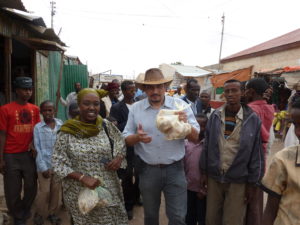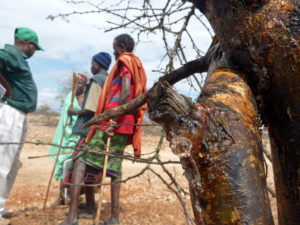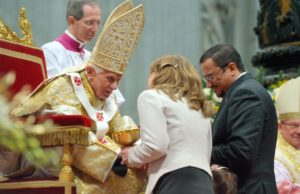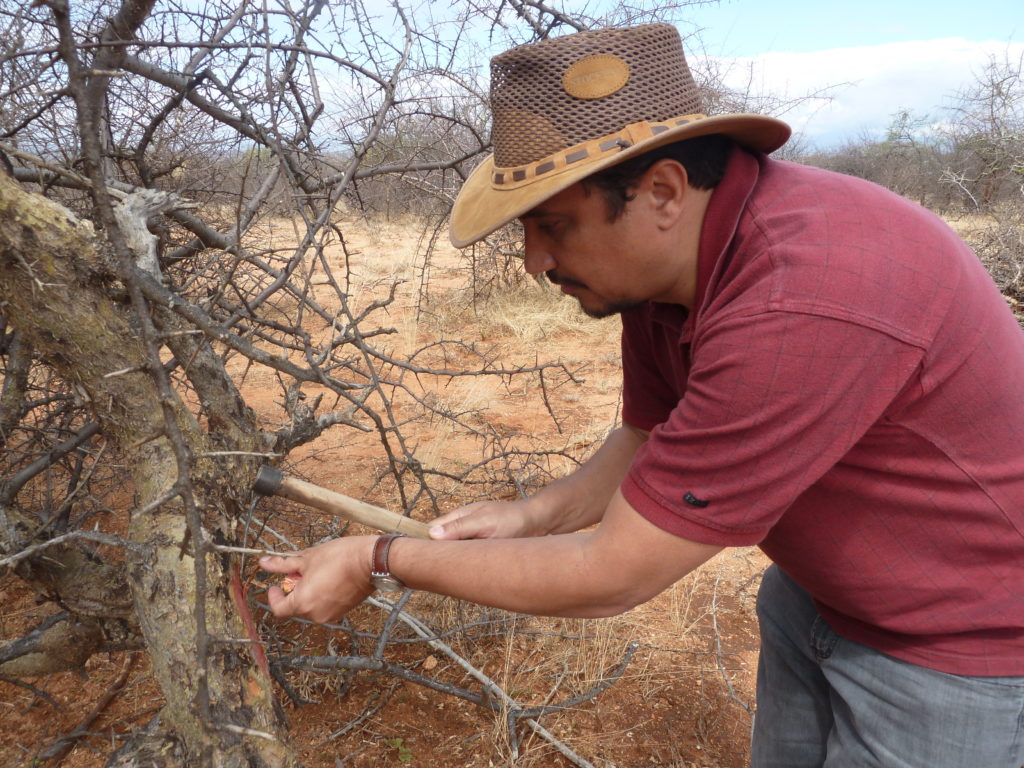São Paulo – Martinho da Rocha (pictured above) made two major changes in his life. First, he left the research labs behind, acknowledging his own need to be on the move. Then he abandoned his career as a video producer to become an entrepreneur and found Milagros. The brand is a pioneer in the production of resin-based incenses in Brazil.
The Brazilian holds a degree in agriculture and fell in love with frankincense when he walked the Camino de Santiago. Rocha had aimed at getting back in touch with his religion and spirituality. There he smelled the aroma of a traditional incense made from the resin sapped from trees from the Middle East and North Africa, then he decided to buy and resell that frankincense Brazil.

Twenty years after the establishment of the company, Rocha now produces his own incenses. Milagros has a factory in São João da Boa Vista, São Paulo, and a store in Aparecida, a city that holds the National Shrine of Our Lady of Aparecida and receives many Catholic pilgrims every year.
Manufacturing
Milagros sells over 20 types of incense, including Lacrima Christi, made from raw materials from Oman, Olibanum Somalia, based on Somali resin, and Olibanum Sudan, manufactured from resin from Sudan.
They also sell products imported from the United Kingdom, Italy, and Netherlands. Incenses available include Greek, frankincense, and myrrh. Besides the incenses, the brand also sells items like censers and coal.

For the entrepreneur, large-scale exports are only expected to take place in the long term. “I still have a lot to expand here in Brazil. I have some consultations, and the market out there is latent, but I still don’t have a person for that. My team is very busy with the domestic market. Our brand is very strong, and I believe I still have much to grow. I have to make the company bigger and more influential,” he said.
Visit to Arab countries
In 2010, he went on a journey through the African continent. “I visited Nairobi, Kenya, where I had the support of a team that accompanied me in Somaliland [a region in Somalia],” he said. Rocha recalls the warm welcome wherever he went. “The strong suit there is the gum arabic, so they were very surprised when they learned I had come to their country from Brazil to get to know their frankincense production,” he said.

This trip inspired him to establish the Share the Wealth Project. “It was very exciting but also hard to see how the people that extract the resin live in poverty. So I started having meetings with raw material buyers, discussing the need to take this prosperity to them as well,” he said.
The entrepreneur has even presented the idea to religious people in Vatican, where he went thanks to Milagros. During the pandemic, Rocha had to pause the search for support, but he plans on resuming the project soon.
Its incense sales to the Vatican were a turning point for Milagros. “In 2007, pope Benedict XVI came to Brazil, and I was called on to supply incense. I decided to make a blue incense with gold flecks to represent Our Lady. And eight months later they called me [from the Vatican] because the pope had liked it,” Rocha revealed.
Now the entrepreneur delivers incenses to the see of the Catholic Church for free, but the initial sale made a difference for the company’s cash, besides helping to promote the brand. The Brazilian visited the Vatican several times. “Their receptivity was wonderful,” he said.
Another country the Brazilian visited was Oman. “When I went on a trip to China, I’d go through Dubai, so I decided to visit Oman. I went to Muscat and Salalah, a region that has incense. I went to find Boswellia Sacra, the balsamic tree that produces the best resin-based incense and is so named because this was the region one of the Three Wise Men came from to visit Baby Jeus. This is the most perfumed and noble species,” he said about the resin from the species that originates a citrus-scented frankincense.
Translated by Guilherme Miranda




